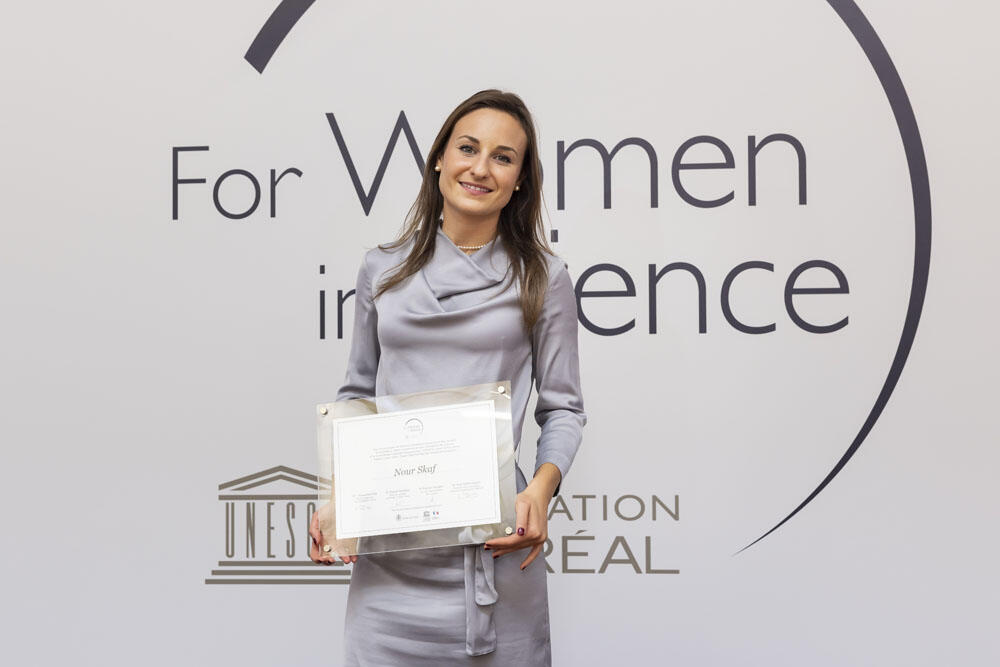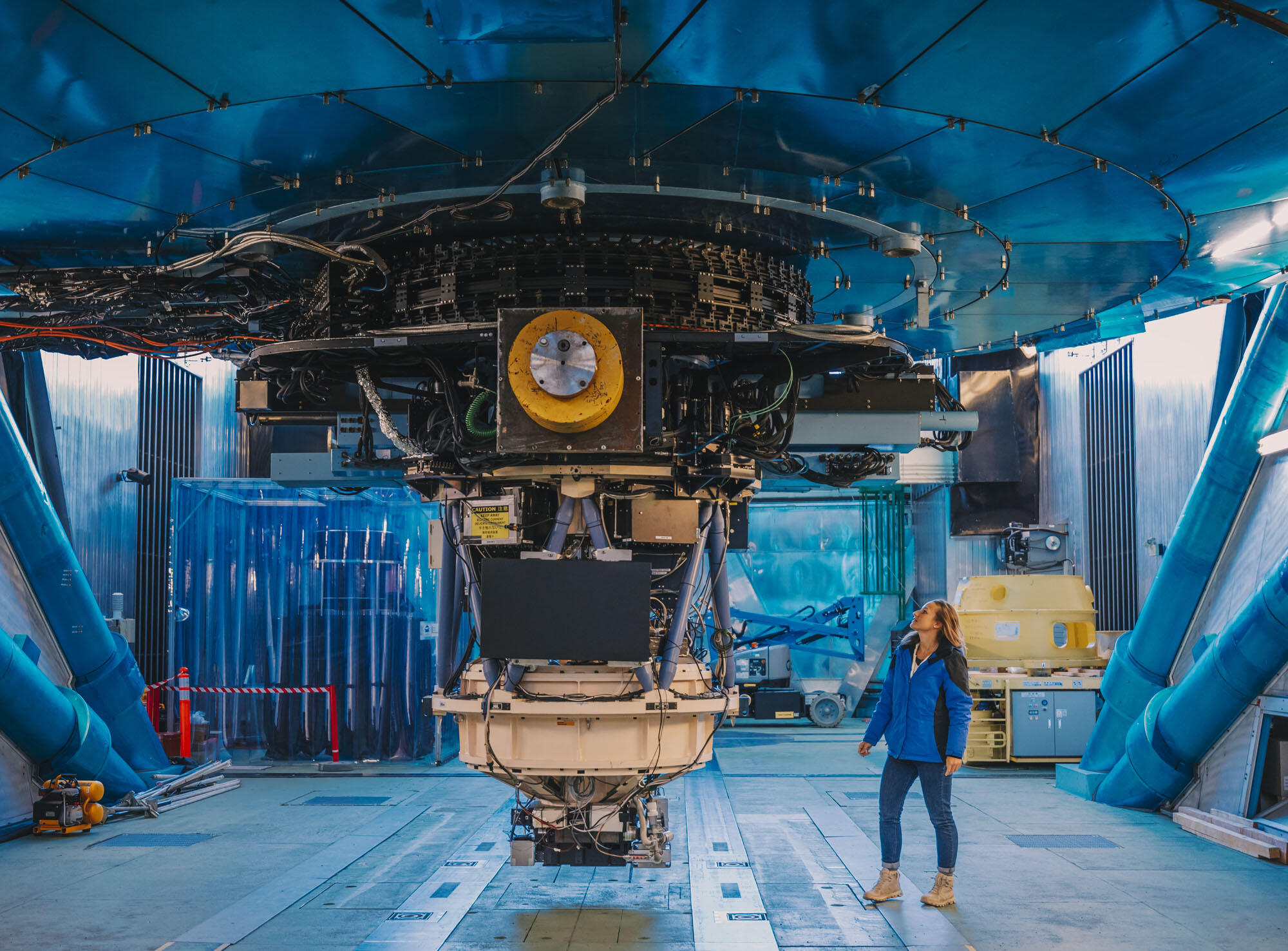Nour Skaf, Ph.D. student at LESIA (Note 1) of the Observatoire de Paris-PSL and based at Subaru Telescope in Hilo, Hawai`i, received the "L'Oréal-UNESCO for Women in Science - Rising Talents - France 2021" award.

Figure 1: Nour Skaf, who received the "L'Oréal-UNESCO for women in science - Rising Talents - France 2021" award, holding the certificate. The awards ceremony was held on October 7, 2021, at the Institut Henri Poincaré in Paris. (Credit: Jean-Charles Caslot)
Each year, the "L'Oréal-UNESCO for Women in Science - Rising Talents" prize, awarded by the L'Oréal Foundation with the Academy of Sciences and the French National Commission for UNESCO, rewards 35 doctoral and postdoctoral students in France to support their research projects and give them visibility. With the motto "The world needs science, and science needs women," the award's goal is to help academia to be more inclusive by promoting the scientific excellence of women, which remains too little recognized. According to UNESCO, women remain under-represented in scientific research: in 2019, they represented only 29% of researchers in the world and 27% in France. Japan had one of the lowest shares of women studying science, at 16%.
Originally from a small French village, Nour Skaf has been a Ph.D. student at LESIA of the Observatoire de Paris-PSL since 2019. She is also a visiting Ph.D. student at the Center for Space Exochemistry Data, University College London (UCL). She carries out her research jointly between LESIA, UCL, and the SCExAO (Subaru Coronagraphic Extreme Adaptive Optics) team at the Subaru telescope in Hawai`i, where her work is supported by a NASA grant. As a SCExAO team member, Nour developed the Direct Reinforcement Wavefront Heuristic Optimization (DrWHO) algorithm to compensate for atmospheric turbulence. "Working in the SCExAO team at the Subaru Telescope has been a precious experience in my journey that I am deeply grateful for," says Nour.

Figure 2: Inside the enclosure, Nour looking at the giant Subaru Telescope. (Credit: Andrew Richard Hara)
She is very involved in outreach in astronomy and astrophysics, particularly reaching young girls, to strengthen their confidence and attract them to science. "Receiving this prize is an honor and a validation of my efforts. More importantly, I see this prize as an opportunity, if not a responsibility, to break down prejudices regarding the place of women in the field of sciences, especially in astronomy, where they are in the minority," says Nour. She will keep inspiring many girls who are interested in being a scientist.
Note1: LESIA (Laboratoire d' Etudes Spatiales et d' Instrumentation en Astrophysique - Laboratory for Space Science and Astrophysical Instrumentation) is a department of the Paris Observatory, PSL Research University (Université de recherche Paris Sciences et Lettres).


